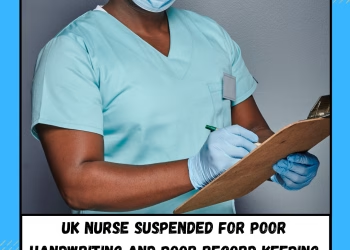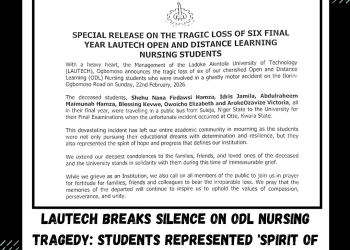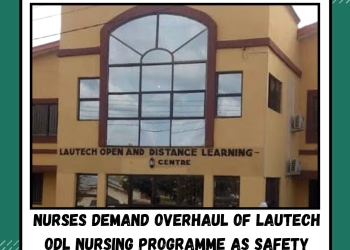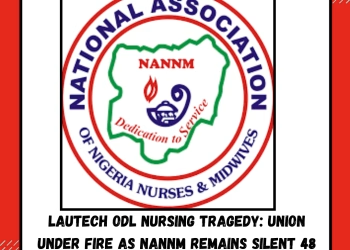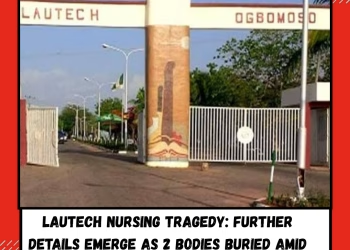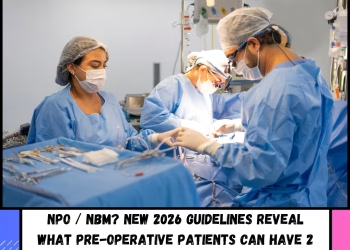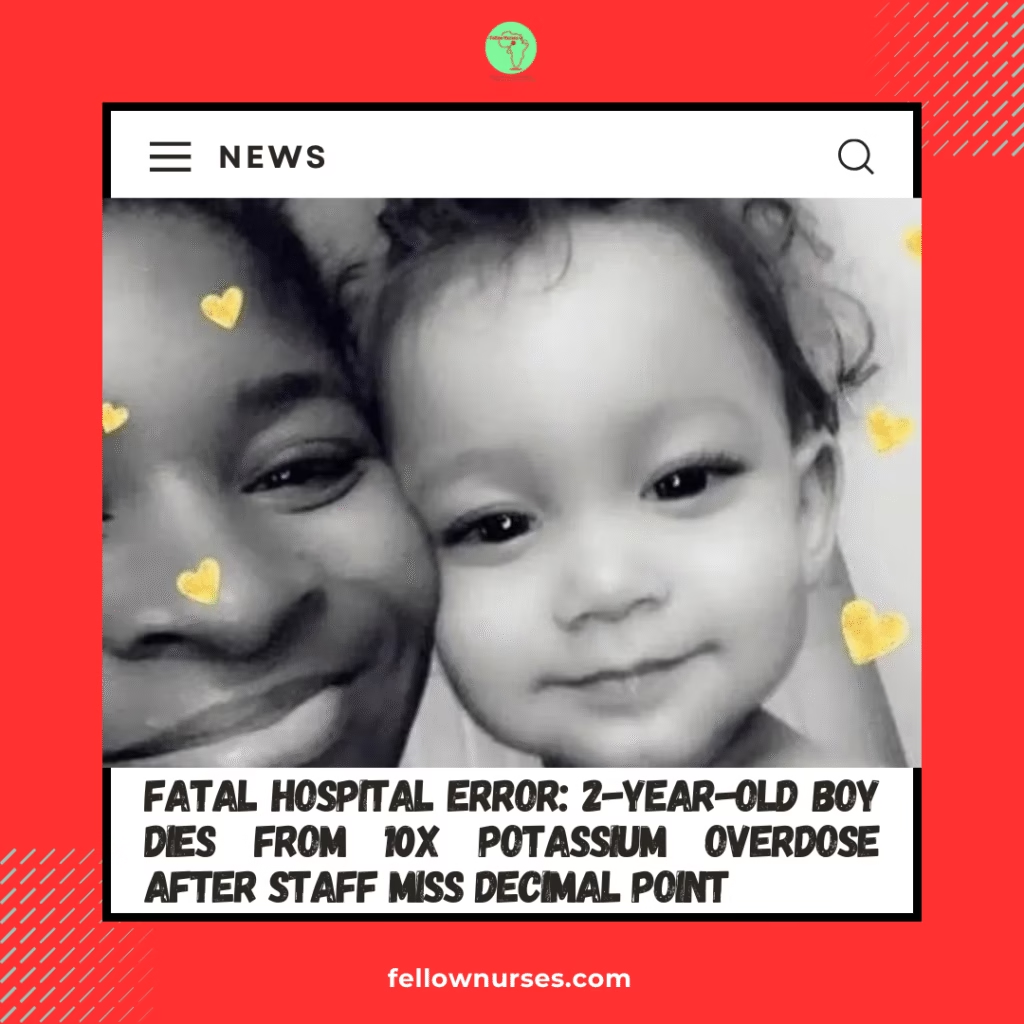
In a devastating case of medical negligence, 2-year-old De’Markus Jeremiah Page died after receiving a tenfold overdose of potassium phosphate at UF Health Shands Hospital in Gainesville, Florida. The error stemmed from a misplaced decimal point in a medication order, leading to cardiac arrest, brain death, and the toddler’s tragic passing on March 18, 2024. His mother has filed a lawsuit alleging wrongful death and systemic failures in pediatric care.
Emergency Transfer and Critical Condition
De’Markus, a special needs child weighing just 21 pounds, was first admitted to AdventHealth Ocala Hospital on March 1, 2024. He presented with persistent vomiting, diarrhea, and reduced oral intake. Blood tests revealed dangerously low potassium levels, prompting an urgent transfer to Shands Hospital for intravenous therapy the following day.
Despite his fragile condition and below-average weight, De’Markus was not placed in intensive care. No 24-hour intake and output monitoring was initiated during his 36-hour stay, a critical oversight for a patient at high risk of electrolyte imbalance.
The Fatal Medication Mistake
On March 3, 2024, a physician entered an oral potassium phosphate order with a catastrophic error. The intended dose was 1.5 mmol twice daily. Due to a misplaced decimal point, the order was recorded as 15 mmol—ten times the prescribed amount.
Compounding the danger, De’Markus’s morning potassium levels had already normalized. The excessive dose was administered alongside ongoing IV potassium chloride and Pedialyte, with no additional monitoring. The combined potassium load rapidly elevated his blood levels to lethal concentrations, triggering cardiac arrest.
Delayed Response and Irreversible Damage
Hospital staff failed to detect the cardiac arrest in real time. Once alerted, response was severely delayed—over 20 minutes—due to inadequate training and unavailable pediatric intubation equipment. Multiple failed attempts to secure his airway prolonged oxygen deprivation.
The lack of timely intervention caused catastrophic brain injury. De’Markus remained on life support for two weeks, enduring seizures and multi-organ failure. He was declared brain dead and died in his mother’s arms on March 18, 2024.
Mother’s Grief and Legal Action
Dominique Page, De’Markus’s mother, filed a lawsuit in Alachua County Circuit Court against UF Health Shands Hospital. The suit accuses the facility of medical negligence, failure to monitor, improper dosing, and inadequate emergency response.
“Every day I wake up and look for my son, and he’s not there. He’s gone, and he didn’t have to be,” Dominique said. “We trusted Shands with his care. They killed my little baby boy and never acknowledged their wrongdoing. This is every mother’s worst nightmare.”
Attorney Jordan Dulcie, representing the family, stated: “No parent should endure this. The errors were entirely preventable. We will hold the hospital fully accountable.”
The lawsuit seeks damages exceeding $50,000 for wrongful death, emotional distress, and medical costs.
Hospital Statement
UF Health Shands Hospital declined to comment on the case, citing patient privacy under HIPAA regulations: “We are committed to protecting the privacy of all patients and their families and follow all state and federal regulations. We cannot release information without consent.”
Broader Implications for Patient Safety
This tragedy highlights preventable risks in pediatric medication administration, especially for vulnerable children with special needs. A single digit error—missing a decimal point—cascaded into a fatal outcome due to lack of verification, monitoring, and emergency readiness.
For African healthcare providers, the case serves as a stark reminder: even in advanced systems, human error can be deadly without robust checks. Double-verification protocols, electronic prescribing systems, and regular staff training are essential safeguards.
What can nurses do to prevent dosing errors in high-pressure environments? Share your insights in the comments.
Fellow Nurses Africa is the independent voice of African nursing. We educate, inform and support nurses across Africa.

